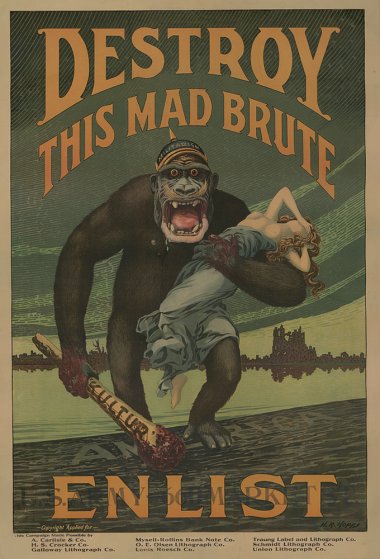Remembering the Centennial of the End of the Great War
 On November 11th, 2018, we will reach the centennial of one of the most portentous dates in human history. On that day, in 1918, the guns fell silent and the killing stopped and World War One, known as “The Great War” before another world war came along, came to an end.
On November 11th, 2018, we will reach the centennial of one of the most portentous dates in human history. On that day, in 1918, the guns fell silent and the killing stopped and World War One, known as “The Great War” before another world war came along, came to an end.
It’s a problematic anniversary. It was one of the defining moments in world history, and it seems like it should be commemorated, but how to do it?
In 1914, there were four emperors who went to war, in Russia, Germany, Austria-Hungary and Turkey. After 1918, Russia was in a bloody civil war from which would emerge the Soviet Union, Germany was setting up a fragile democracy, Austria-Hungary was smashed into its constituent parts, and Turkey’s Ottoman Empire was divided up by Britain and France in a way that set the stage for today’s troubled Middle East.
Further, the vindictive and arbitrary terms of the Treaty of Versailles led directly to the rise of the Nazis, and the even more murderous Second World War.
In the “victorious” powers, victory was really just relief and exhaustion. A whole generation was decimated in France and Britain, and there was a general sense not of victory, but of failure – a sense that the old-fashioned values of service, sacrifice, loyalty and patriotism that had motivated those young men to march off to war had all been a lie. The “lost generation” could not really see how it had all been worth it.
Even in America, which had been involved in active fighting for only a few months, the war had its impact. Those few months had been a literal hell for the Americans who actually saw combat, and the Doughboys returned not only with a broader, less provincial view of the world; but with an angry cynicism much like their French and British brothers.
This also coincided with the Spanish Influenza, which killed in the space of a year, even more people than the war.
So, now this centennial is upon us. What do we do about it?
For some reason, World War Two is far easier to commemorate. If you throw a Swing Dance and ask everyone to dress as GIs and Rosie the Riveter, while they Jitterbug to an Andrews Sisters cover group, everyone joins in the fun; without feeling the need to contemplate the many horrors of that conflict.
This is not the case with the Great War. An event I helped organize on the centennial, in 2014, of the beginning of the war, focused on the music of the time and, as it was in a movie theater, had a running slide show of sentimental postcards of soldiers of all nations with their sweethearts. It also included displays from World War One re-enactors and had a section where I had each nation’s representatives step forward while I gave a brief summary of their participation and how many people they lost (generally in the millions). I think it struck the right tone – focusing on people and not battles and such. However, it was not very well attended; and got a fair amount of criticism on social media from those who weren’t there, for glamorizing and whitewashing the war.
Essentially, the mind set seems to be that any remembrance of the War that doesn’t focus on a photo-montage of mangled bodies hanging on barbed wire is a false and romanticized betrayal.
However, if you ask anyone if they would pay to attend a photo-montage of mangled bodies hanging on barbed wire, the answer would be an emphatic no.
So where do you go from here? I would very much like to remember this pivotal moment in world history as it approaches, but I don't really see how it's going to happen.
As an event organizer, I am not going to risk my personal capital on an event theme that has a proven track record, at least here in Southern California, of having very little draw. I am pretty sure that if I rented a hall, hired a band and announced an Armistice Day event, I would take a serious financial hit.
I have also seen only a few examples of interest on the part of local groups and historic sites in the centennial of the Great War. I suspect November 11th 2018 will pass as just another Veterans’ Day – a day for me to get a free burger at Chilie’s with an old Army photo, but not a day, in the minds of most Americans, of any unusual import.
I know it’s different in Europe, where I have seen some very poignant remembrances of the Great War, but it doesn't seem to be so in the USA.
I think most of my fellow countrymen and women are largely ignorant of the fact that November 11th will be the centennial of the day the world changed: the day our modern world was born from a crucible of unimaginable suffering and loss – and on November 12th 2018, they will be no less ignorant.
